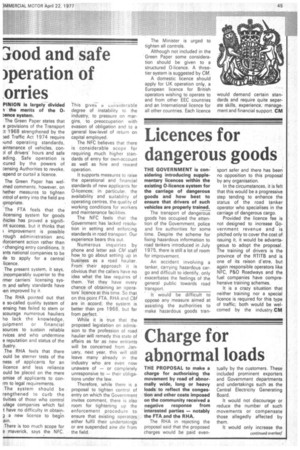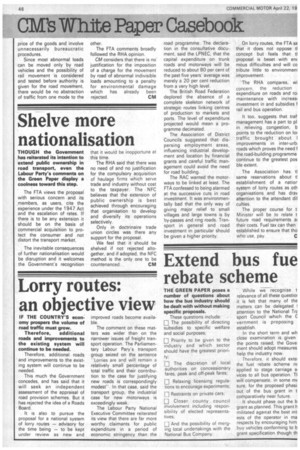Charge for abnormal loads
Page 47

Page 48

If you've noticed an error in this article please click here to report it so we can fix it.
THE PROPOSAL to make a charge for authorising the movement by road of abnormally wide, long or heavy loads to reflect the congestion and other costs imposed on the community received a negative response from interested parties — notably the FTA and the RHA.
The RHA in rejecting the proposal said that the proposed charges would be paid even
tually by the customers. These included prominent exporters and Government departments and undertakings such as the Central Electricity Generating Board.
It would not discourage or reduce the number of such movements or compensate those allegedly affected by them.
It would only increase the continued overleaf price of the goods and involve unnecessarily bureaucratic procedures.
Since most abnormal loads can be moved only by road vehicles and the possibility of rail movement is considered and tested before authority is given for the road movement, there would be no abstraction of traffic from one mode to the other.
The FTA comments broadly followed the RHA opinion.
CM considers that there is no justification for the imposition of a charge for the movement by road of abnormal indivisible loads amounting to a penalty for environmental damage which has already been
rejected. CM




















































































